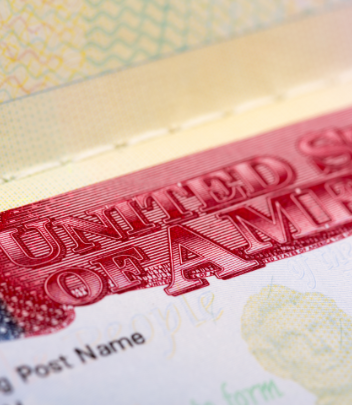Driving Under The Influence Of Alcohol
Driving Under the Influence of Alcohol
Defense Attorney for Driving Under the Influence
According to the National Highway Traffic Safety Administration (NHTSA), approximately 28 people die every day from accidents caused by those driving under the influence of alcohol. And although these DUI-related fatalities reached an all-time low in 2019 since 1982 — the year when NHSTA began reporting drunk driving statistics — those 10,142 lives lost in 2019 are gone forever.
Driving under the influence of alcohol is considered illegal across the United States, including the state of California. People who insist on drunk driving put not only themselves and their passengers’ lives at risk, but also those of other motorists and pedestrians.
The Law
The law concerning driving under the influence of alcohol and drugs is pretty straightforward.
According to the 2009 California Vehicle Code – Section 23152-23229.1: Article 2. Offenses Involving Alcohol and Drugs, it is illegal to operate or drive a vehicle with a blood alcohol concentration (BAC) of:
- 0.08% or higher for a person aged 21 or older
- 0.01% or higher for a person under the age of 21
- 0.01% or higher at any age for persons on driving under the influence (DUI) probation
- 0.04% or higher for a person driving any vehicle requiring a commercial driver license (CDL) — whether or not a CDL was issued to the driver
How Alcohol Affects Driving Ability
Driving under the influence of alcohol can impair one’s hearing and vision significantly. It clouds one’s thinking, concentration, reasoning, hand-eye coordination, and response times, particularly in the face of unsafe driving conditions and hazardous situations.
The more alcohol enters a person’s system, the greater its negative impacts on the central nervous system. The measure for blood alcohol content is referred to as BAC or blood alcohol concentration.
A BAC of .08 grams of alcohol per deciliter (g/dL) of blood increases the risk of a DUI-related car accident exponentially — which is why it’s illegal to drive with this BAC (or higher) in all 50 states, plus the District of Columbia and Puerto Rico. In Utah, however, the BAC limit is set at .05 grams of alcohol per deciliter (g/dL) of blood.
In general, drinking alcohol while driving and drunk driving are forbidden because even smaller amounts of alcohol can impact a person’s ability to drive. In fact, back in 2018, NHTSA data revealed that there were 1,878 fatalities in car crashes involving drivers with BACs of .01 to .07 g/dL.
The Effects of BAC (Blood Alcohol Concentration)
According to the NHTSA, the effects of the various BAC levels on people are as follows:
- 0.02: The person becomes relaxed, feels slightly warm, and experiences a difference in their mood. There is a certain level of loss of judgment and a decline in their visual functions and ability to do two things at the same time.
- 0.05: The person exhibits exaggerated behavior, loss of or reduction in coordination and small-muscle control. They experience a generally pleasant or good feeling (being in the mood) and become less inhibited, although their judgment becomes impaired and they have a lower sense of alertness.
- 0.08: The driver manifests poor muscle coordination, slurred speech, slow reaction time, and a reduced ability to detect danger. Vision, concentration, judgment, self-control, reasoning, perception, and memory are all impaired.
- 0.10: A driver with this BAC shows signs of deteriorated reaction time, lack of control, slow perception, impaired judgment, and poor coordination. They may no longer be able to keep to the right lane and brake properly.
- 0.15: With this BAC, there is significant loss of muscle control and balance, inattentiveness to their driving task, and difficulty maintaining vehicle control.
The effects of alcohol may also vary, depending on the level of alcohol tolerance of each person.
Dangers of Drinking and Driving
As indicated in the various deleterious effects of different BAC levels on people, the dangers of drinking and driving are real and could lead to fatal lapses in judgment.
In general, the physiological effects of driving under the influence of alcohol are as follows:
Slow Reaction Time
The presence of alcohol in the body affects how fast (or how slowly) you can respond to various stimuli. When you’re driving under the influence of alcohol, your reaction time is usually slower and you may not notice changing traffic or driver’s signals. This, of course, is a recipe for disaster.
Lack of Coordination
For you to be able to do anything — especially drive — your hands, eyes, and legs should be working in coordination. The presence of alcohol in your body, especially after heavy drinking, can lead you to exhibit uncoordinated movements, such as when you’re walking, opening the car door, or finding the ignition. This means you’re in no condition to drive.
Poor Judgement
How you react or choose to act in certain situations depends on how your brain interprets and processes information. However, when your thought processes are impaired by alcohol, you may exhibit poor judgment. Your brain won’t have the alertness and focus it needs to help you respond to unsafe driving situations promptly, such as when you need to slow down quickly or swerve to avoid a collision.
Blurred Vision
Substances like alcohol affect the brain and other bodily systems. When you consume alcohol or you’re drunk, your vision is also impaired. You may not be able to see clearly and have trouble controlling the movement of your eyes. Clarity of vision is a critical element of safe driving, so driving while drunk is ill-advised. [Note to the Client from writer: Hi! This is not included in the brief but slow reaction time was mentioned twice, so I put this as a replacement. Thanks!]
First Offense
The “first offense” DUI meaning in California implies that you haven’t been charged of a DUI in the past 10 years. In California, a first offense DUI is prosecuted as a misdemeanor with the following typical first DUI penalties:
- Fines, assessments, and fees that can reach a total of $1,600 to $2,300
- Jail time of up to six months
- Possible probation of three to five years
- Suspension of license from six months to one year
- Choice between a 12-month restricted license with an ignition interlock device (IID) or a maximum six-month IID requirement after license reinstatement
Depending on the presence of certain aggravating factors (e.g., high BAC, speeding, etc.), the court may subject you to additional penalties.
Second Offense
Some possible penalties if you are charged with a second DUI offense classified as a misdemeanor include the following:
- Attending an 18- to 30-month alcohol/drug program
- Fines and substantial mandatory assessments
- Up to one year of jail time
- IID device installation for a period lasting a maximum of 3 years
- Two-year license restriction
- Possible license suspension if the offense involved the use of a vehicle requiring a class 1, 2, A, or B license
Third Offense
A criminal misdemeanor sentence for a third DUI offense may involve the following penalties:
- 120 days to 1 year of jail time
- Fines and substantial mandatory assessments
- 3-year revocation of driver’s license
- Compulsory 18-month alcohol/drug program if you have not finished one before
Fourth Offense
When you are prosecuted for a fourth DUI offense as a misdemeanor, you may be subjected to the following penalties:
- 120 days to 1 year of jail time
- Fines and substantial mandatory assessments
- 4-year revocation of driver’s license
- 18-month alcohol/drug program if you have not finished one before
Practice Responsible Behavior
Responsible driving means no drinking whatsoever.
If you or someone you know has been drinking, always arrange for a safe ride home. This can mean getting a taxi, a sober friend or family member to do the driving, or a ride-sharing or hailing service.
Also, make sure you always wear your seat belt and contact law enforcement if you detect an impaired driver on the road.
Do You Need Help With a DUI Case? Ezquerro Is a Dedicated Criminal Defense Lawyer Here to Help You If You Are in Need!
If you find yourself involved in a driving under the influence of alcohol case, please contact Ezquerro. We’re the help you need in times like these.

Driving Under the Influence
Business Law & Social Offence

Violent Crimes
Family Law

Theft
Civil Disopedience & Social Offnce

loading ...
© COPYRIGHTS 2023 ALL RIGHTS RESERVED | PRIVACY POLICY AND TERMS AND CONDITIONS


